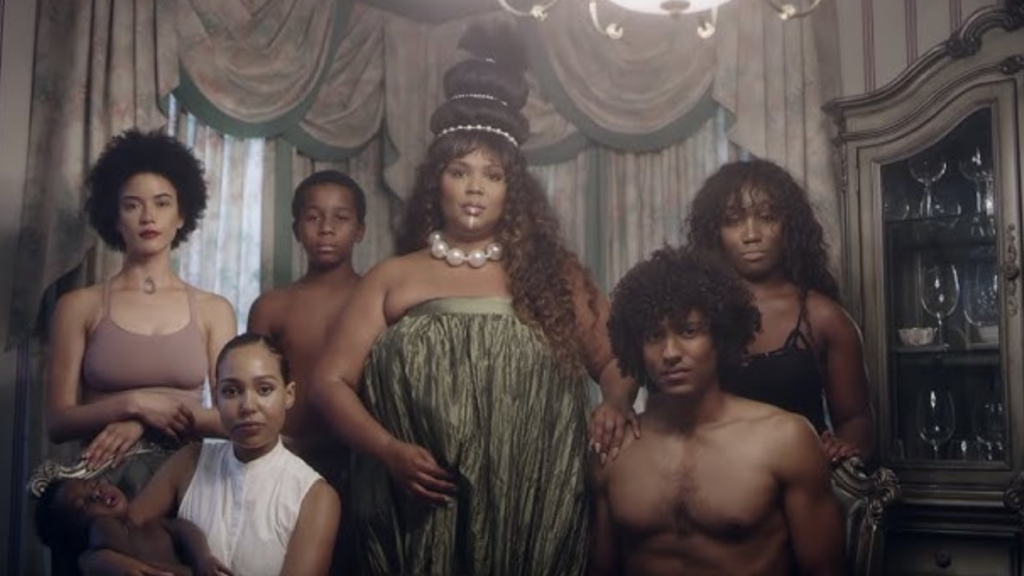
OPINION: Visibility is the only way to combat body shaming in the media
Even though we’ve been seeing the body positivity movement for some years now, body shaming in the media is still, unfortunately, a thing. Sometimes I’m amazed at how bold people are when body shaming others — particularly larger people.
In my personal life, I have definitely had to deal with a lot of body shaming throughout the years. People just love to make passive aggressive comments, or offer unsolicited health advice — which are usually just insults disguised as concern. “It isn’t healthy for you to be that big,” they’ll say as they down their twelfth glass of vodka and tonic, or smoke their twentieth cigarette.
I also find it funny that, when it comes to larger bodies, dressing a certain way all of a sudden becomes inappropriate — regardless of the fact that smaller people can dress that way with no problems. “You shouldn’t be dressed like that” or “cover yourself up, there are children here”, they’ll say.
My thoughts on this subject stem from an incident that happened recently in the media that involved none other than the Queen of Big Girls herself, Lizzo. For the past couple of years, Lizzo has been quite a polarizing figure; People seem to either adore her or they can’t stand her. But, despite how you may feel about Lizzo, she has definitely taken body positivity to the next level.
Many people may remember back in December of 2019 when Lizzo turned heads at an L.A. Lakers game when she twerked on the sideline in a thong. Many people slammed her, saying it was inappropriate and tasteless for her to wear such a revealing outfit to a basketball game that was also being attended by families with children. Ok sure, there’s a time and a place for certain things and “yadda, yadda, yadda.”
But, let’s really dig a bit deeper just for a second — If Lizzo was a more petite woman, would her outfit have been bashed so harshly? I mean, look at some of the things these cheerleaders and dance teams wear to basketball games, and no one bats an eye. The real reason why many people were offended is because Lizzo is a plus size woman, and people don’t feel that plus size women should wear certain things.
After that incident, Lizzo seemed to quiet down for a bit. I mean, a few months after that basketball game, we fell right into a pandemic, so that may have something to do with her absence. Nonetheless, we didn’t hear much from Lizzo until recently when she released her newest single “Rumors” featuring Cardi B. Many fans praised the song and music video, stating that Cardi B and Lizzo worked well together.
However, there were many people who had a lot to say — once again — about the way Lizzo looked in the video. The singer took to Instagram to tearfully call out, not only the fatphobic comments she received on social media, but the racist ones as well.
“Sometimes I’m like, the world just don’t love me back,” she said. “It’s like it doesn’t matter how much positive energy you put into the world you’re still going to have people who have something mean to say about you.”
It angers me to watch large people have to go through things like this in the media. I sometimes forget how narrow minded the world is — my social media feeds are overflowing with body positivity. People on my social media feeds are uplifting and encouraging — I rarely see anyone who has anything fatphobic, racist or homophobic to say.
But outside of this safety bubble that I and many others create for ourselves on social media, the reality is that celebrities with the type of exposure that Lizzo has can’t get away from the negativity that easily. I can only imagine how it feels to wake up happy about the work and creativity that you’ve put into the world, only to have it all come crashing down once you start to read the comments. (This is something I try to teach myself — don’t read the comments!)
And though Lizzo is the most recent example of body shaming in the media, she isn’t the only one — And many men are also body shamed. Earlier this year, actor Jonah Hill opened up a conversation about male body shaming, sharing that he has endured many years of body insecurity, exacerbated by the way the media has treated him because of his weight.
“I don’t think I ever took my shirt off in a pool until I was in my mid 30s even in front of family and friends, he wrote in an Instagram post. “Probably would have happened sooner if my childhood insecurities weren’t exacerbated by years of public mockery about my body by press and interviewers,” he wrote.
So, what do we do about body shaming? I mean, people are going to have their opinions about everything, right? And, whether you ask them their opinion or not, most people won’t hesitate to give it to you. So, how to we protect ourselves?
We just have to keep reminding everyone that bodies of every size are beautiful. We won’t be able to change everyone’s mind, but we can normalize and amplify body positivity everywhere we go.
We can make sure to always include people of all sizes. We can push larger bodies to the front more often in commercials and advertisements. And, despite what anyone says, we need people like Lizzo to shake her ass in a thong in front crowds of people to let people know that she’s proud of her body and she won’t change for anyone.
The only way we prevent body shaming is with continued visibility and representation.If people don’t want to see large bodies, then make them see large bodies. If people only want to see curvy women, show them women who don’t have lots of curves. Give them the exact opposite of what they want to see in order to open their eyes to the fact that other people and things exist outside of the boundaries they create for themselves.
I really hope Lizzo is naked in her next video. That will teach them to not body shame.











